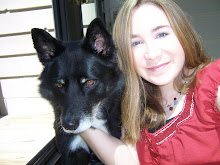After reading through some more articles and statements from reputable sources, it has shed some light on some of the issues being worked out regarding orphan works. It seems as though there was a provision in the House bill to create a “dark archive” that would be a database for the “diligent” searches that potential users of orphan works performed to try to locate the owner of said orphan works. There are good reasons to make this database a dark archive, but there are also good reasons to make it available to the public. The “diligent” searches could be studied as to best practices for a search. But all of this work of creating this database only for the purpose of being used in case of a lawsuit renders it useless in countless other ways the information could be used.
Another provision that was discussed was the use of words regarding compensation. It seems in the H.R. 5439, the word “reasonable” was used regarding compensation and then was omitted from S. 2913. When the word reasonable is used, what exactly does this mean? A compensation ceiling has been discussed in some of the readings I have found, but I am not sure if there should be a limit. An orphan work could be any format imaginable and worth any imaginable amount. So many works have a worth that is different to many people. How can someone make use of an orphan work not knowing whether the owner will appear later and demand an unimaginable amount? The money and time involved in a “diligent” search should be considered as a provision. If a work was not registered in the first place, the searcher would not have needed to perform a “diligent” search. I get that the need to register a work in order for it to be copyrighted was done away with. But I think a work should only be automatically under copyright if it includes somewhere the name/names of the creators/owners and an approximate date of creation. Otherwise maybe it should be considered fair game. I understand that certain provisions might add a huge financial burden to creators, but I believe all of these issues need to be discussed and possible solutions tested out for effectiveness and fairness to all parties involved.
References:
Statement of Marybeth Peters
The Register of Copyrights
before the
Subcommittee on Courts,
the Internet, and Intellectual Property,
Committee on the Judiciary
United States House of Representatives
110th Congress, 2nd Session
March 13, 2008
The “Orphan Works” Problem and Proposed Legislation
Accessed on July 14, 2009(also recommend listening to at least part of the hearing webcast located at the top of the following link):
http://www.copyright.gov/docs/regstat031308.html
___________________________________________________________
“Another TEACH Act? Library Association Voices Concerns with Orphan Works Bill” snippet from the Library Journal Academic Newswire May 8, 2008. Accessed on July 14, 2009 (read in print view because adds cut off the right side of article in other view): http://www.libraryjournal.com/index.asp?layout=articlePrint&articleID=CA6559033
Letter to the House of Representatives, Committee on the Judiciary,
Subcommittee on Courts, the Internet, and Intellectual Property from the Library Copyright Alliance. Dated May 5, 2008. Accessed on July 14, 2009:
http://www.arl.org/bm~doc/hr5889ltlca3.pdf
¬
http://www.librarycopyrightalliance.org/index.htm
Subscribe to:
Post Comments (Atom)


2 comments:
I was not aware that there was a difference in the wording. That's a really fantastic observation. You have the problem pegged, "What does reasonable mean?" The idea of a dark archive solely for copyright purposes is interesting. So, then it would be made available to librarians but not the general public? Does this mean that if the item is not in the archive, then you don't have to look anywhere else? It's frustrating that there are no set boundaries.
Post a Comment